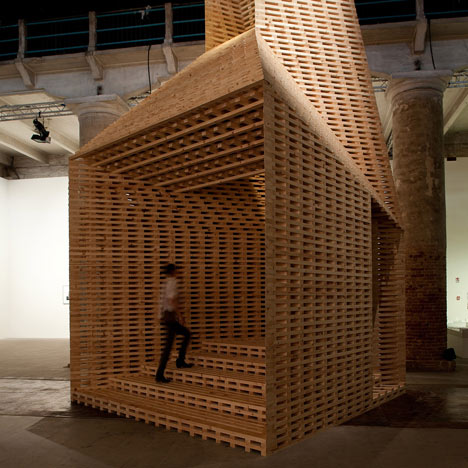
Vessel by O’Donnell + Tuomey at Venice Architecture Biennale 2012
This wooden chamber by Irish architects O’Donnell + Tuomey stretches up like a funnel towards the roof of the Arsenale Corderie at the Venice Architecture Biennale.
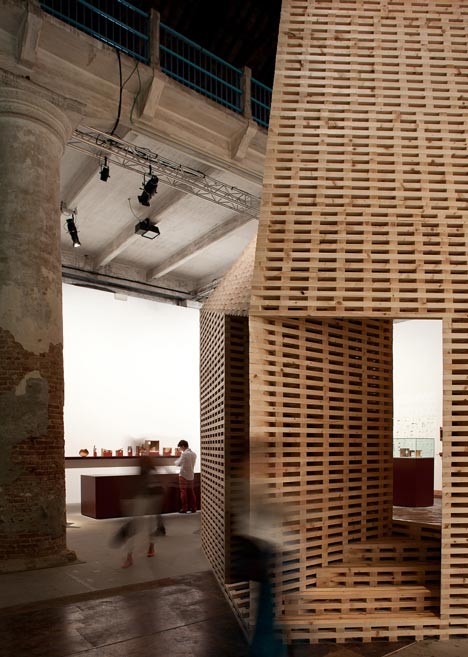
Top and above: photography is by Alice Clancy
There are rectangular holes between the columns and beams of the wooden structure, which the architects compare to the timber moulds that are used to cast bricks.
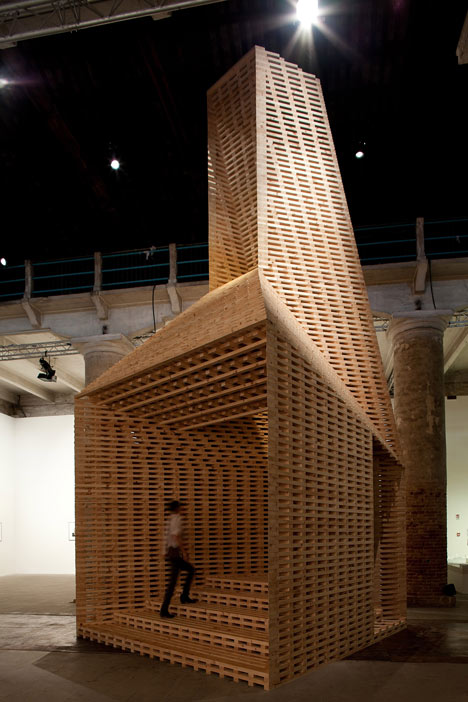
Above: photograph is by Alice Clancy
Vistors to the exhibition can climb inside the chamber through openings on each side, while light filters in through another opening at the top.
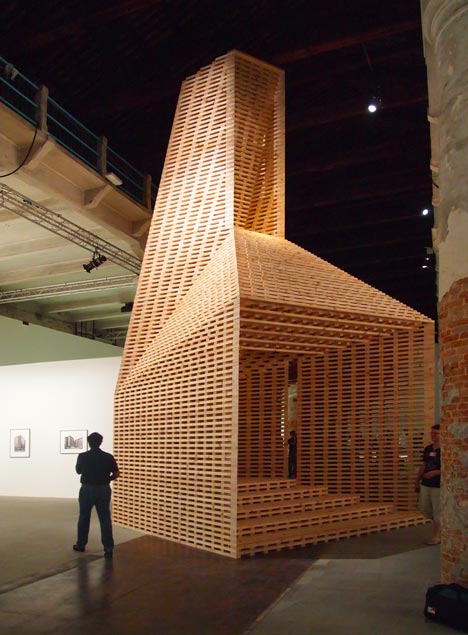
Other exhibitions at the Arsenale include hanging foam models by Herzog & de Meuron, a pleated metal funnel by Zaha Hadid and a house built by Indian craftsman.
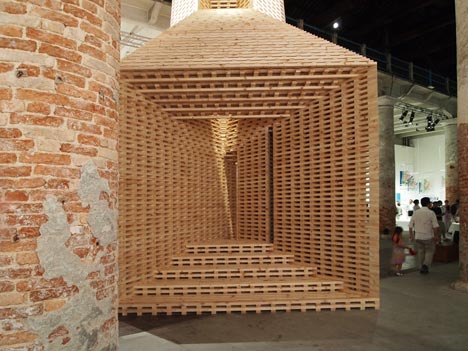
See all our coverage of the Venice Architecture Biennale »
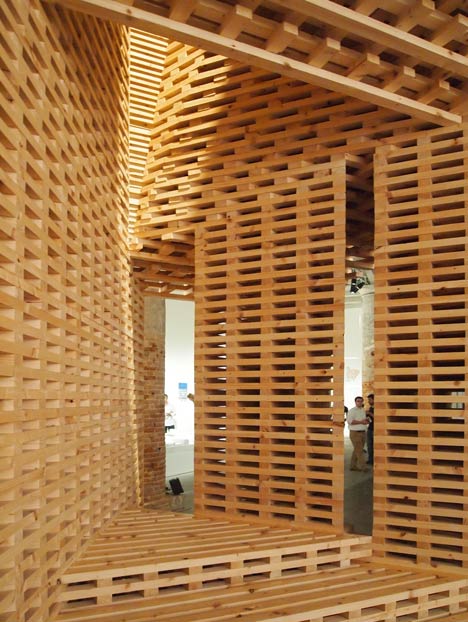
Here's a description from O’Donnell + Tuomey:
The word vessel is suggestive of embodiment, enshrinement and containment. It carries associations with craft and circulation. Airship, boat, blood vessel, utensil.
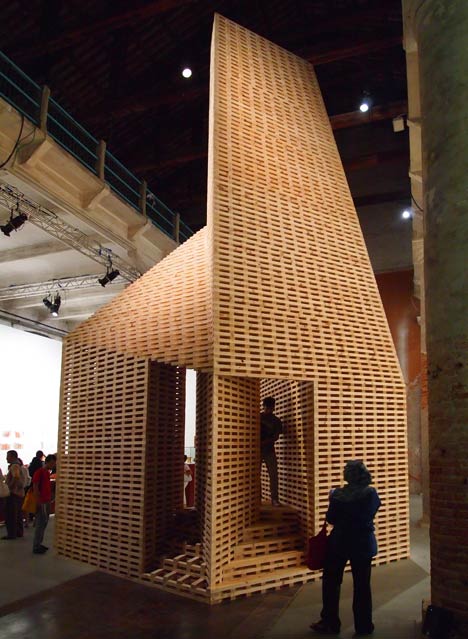
Vessel is a site-specific response to the theme of Common Ground, a plank-stacked structure in conversation with the layered brick construction of the Corderie. Vessel is a contemplative space hollowed out of solid matter, a light funnel, a lantern chamber, and a passage leading towards our common ground.
Literary and artistic affinities constitute our common ground. Architecture’s deeper resonance is related to its wider culture. The work of other architects, artists, poets, and performers sustains us. They provide inspiration for us to make our own work. Such affinities are part of our cultural context. We have invoked precedent and invited practitioners to contribute to our installation. We have remembered inspirational works and reflected on projects that run parallel to our own pursuits.
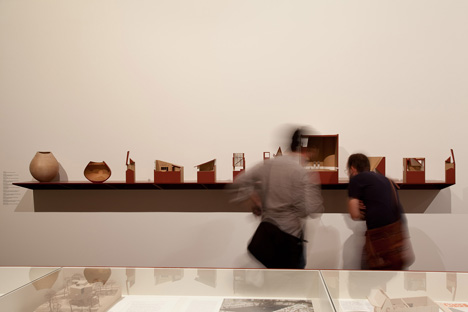
Above: photograph is by Alice Clancy
Bricks are cast from a mould, each special brick has to be hand-thrown from its own wooden casing. Clods of clay are dug out from the forest floor and the wood for the mould is cut from the trees. Brick and timber, the raw materials of archaic construction, have not changed much since the ship-builders built their vessels between the brick columns of the Corderie.